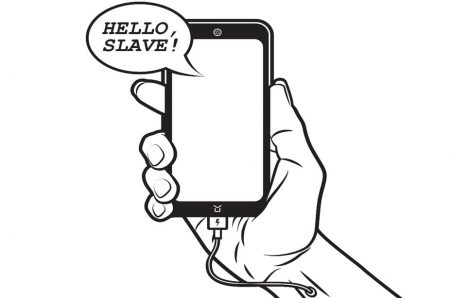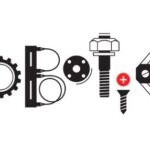June 11, 2018 – Yesterday I vacuumed our apartment from end-to-end even though we own a Roomba which can do the job with very little of my involvement. So why did I waste my time when I had a robot on hand to do the job? I guess because old habits die hard even in the face of technological advancement. But after going under couches and bookcases and maneuvering into the tiniest spots with an extension wand, and after straining my already worn out knees I got to thinking about how we could becoming slaves to our technological progress.
The 20th and 21st centuries have given us somewhat of a reprieve from the heavy lifting that always was part of being human. When we lived in a suburban home and had to shovel snow throughout the winter months I finally ditched the hard manual labour and bought an electric snow blower. If I hadn’t we probably would have downsized earlier to an apartment. Unless you have shoveled snow for four or more months a year you may not understand how much that snow blower made a difference in our quality of life in the suburbs.
From kitchen appliances like dishwashers to robot vacuum cleaners, the labour of daily living has been eased because of technological innovation. But I don’t believe any of us could envision how technology could hijack the mental part of being human, thinking and learning. Because the age of computing’s evolution to the age of the Internet and smartphones has made us less mentally agile.
It has gotten too easy to acquire knowledge. Maybe that’s a good thing, and maybe it’s not. Why the latter rather than the former? Let’s look at the pros and cons.
The Pros: Asking Google to find an answer to a question you have provides instant knowledge. It’s hard to argue that this is not a positive development. It means those with access to the Internet through a mobile device now can connect to a repository of knowledge that is universally accessible. The democratizing of information is a good thing.
The Cons: Accepting a Google search result as the penultimate answer to a question, or using a mobile app with menus that control selection do little to stimulate our brains and improve critical thinking. We may have gained an answer which provides instant gratification but how well will it be retained for the long term? Retained knowledge plays a key role in the development of critical thinking and massages the brain encouraging neuronal connectivity that previously didn’t exist. This phenomenon of brain rewiring scientists call neural plasticity. A Google query result does nothing for neural plasticity unless we choose to go beyond the initial answer or answers that appear on Google first page results.
And then there are the apps that dominate our electronic world. Menu-based these apps as broad as Google Search itself, and Facebook, to specific ones that get us to buy stuff online. Menu apps channel us to the answers the app designers want us to see.
Think about the analogy of ordering from the menu of your local diner. When you get the breakfast menu, a place that serves pancakes, sausage, bacon, eggs and hash brons, do you say to the waiter or waitress, “I don’t want anything you are offering. Can you make me an egg-white omelet with a side order of rye toast, no butter?” The truth is, very few of do this. After all, the restaurant invests in the items it features on its menu and is directing you to make choices based on these. So the menu, rather than asking you to think about what you want, directs you to make choices within selected limits.
We use our online apps and social media platforms the same way we use that diner menu. Because Facebook asks us to friend someone, we obligingly do it. Because it asks us to comment, we do that too.
And that, to me, makes us slaves to the technology rather than the masters of it. It’s hard not to become technology’s slave. When I turn on my computer each morning I look at e-mail first before I begin to write my blog postings. I do this because the habit is engrained. The technology and the application it provides directs me rather than me directing it. I do the same with my smartphone each day when I first look at my news feed app which selects for me the stories I read. So instead of “an egg white omelet and rye toast,” I get the latest on who Donald Trump offended today.
What worries me is not that we have become slaves to our technology, but that technology may be making us addicts of it, and even worse may be inhibiting critical thinking and the healthy development of our brains. More on that on a future posting.









